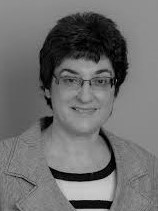 |
BioInfoMed’2020 Invited Speakers
Prof. Maia Angelova (Australia)
|
Abstract
In this talk I will share our current research on modelling complex physiological time series data for objective evaluation of health, physical and cognitive performance. The advances of health and performance monitoring with wearable devices have created new challenges for data science and mathematical modelling by providing massive volumes of continuous time series data in different form, shape and size, captured from our locomotor movements, heart rate, respiration and brain waves. Often for evaluating our physical and cognitive performance, as well as our wellbeing and the quality of life, specialists use different questionnaires. This inevitably brings elements of subjectiveness in the evaluation, which can on occasions provide inadequate or wrong evaluation of the conditions. One aim of our research program is to develop, based on the sensor signals, objective tools for evaluation and classification of physical and cognitive conditions. This brings new challenges in the automatic learning from these signals mainly due to volume and complexity of the data, as well as the inadequacy, or the need of generalisation or adaptation of current metrics used in data mining, machine and deep learning algorithms.
Curriculum Vitae
Maia Angelova is a Professor of Data Analytics and Machine Learning at the School of IT at the Deakin Melbourne Burwood Campus. She is the Director of the Data to Intelligence (D2I) Research Centre and leads the Data Analytics Research Lab at the School of IT. Maia joined Deakin in January 2017. Prior to this, she was a Professor of Mathematical Physics and Leader of the Mathematical Modelling Research Lab at Northumbria University at Newcastle upon Tyne UK since 2004 and before that a Lecturer in Physics in Somerville College at the University of Oxford UK from 1991 to 1996. Maia’s research expertise and interests are in modelling: data-driven modelling of complex physiological systems with specific interests in modelling sleep and insomnia, diabetes, dementia, depression, ageing including healthy ageing. She has strong expertise in time series analysis, spectral analysis and dynamical systems. She uses symmetry and is an expert in representations of groups with anti-unitary operators. She has worked on coherent and squeezed states, which find applications in quantum optics, quantum computing and quantum control. She is the co-author of a Machine Learning (ML) model “Targeted Projection Pursuit” TPP, for dimensionality reduction and visualisation of multivariate data, and a the corresponding tool in Java is available in the WEKA. She was the Coordinator and Principal Investigator of European Framework Program 7 Marie Curie project MATSIQEL, “Models of ageing and technological solutions for improving and enhancing the quality of life” with 86 participants from 6 countries and 4 continents. Maia is a Fellow of The Institute of Physics, a member of The London Mathematical Society, the Australian Mathematical Society and the International Union of Crystallography. Maia is a member of the Editorial Board of Frontiers of Physics, Bioinformatics and Biology Insights and a member of Program Committee and Technical Committees of several international conferences in mathematical and theoretical physics, applied mathematics, data analytics and complex systems. Maia’s research is at the boundary between theory and applications and she is increasingly interested in translational research into the areas of health, medicine and health care. She has been funded by the Australian Defence, Medical Research Council UK, EPSRC UK, European FP6 and FP7 Programs, The Royal Society, The London Mathematical Society, The Australian Mathematical Society and AMSI. She is a Fellow of The Institute of Physics UK, member of the Council in Complex Systems Society (CSS), member of Society of Mathematical Biology, The Australian Mathematical Society and The London Mathematical Society.
